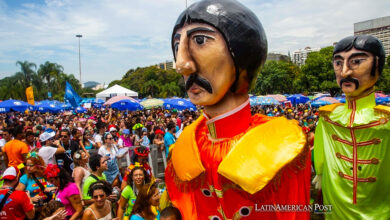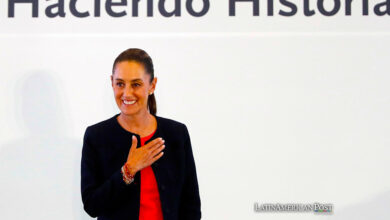What does Cuba await after 60 years of the Revolution?
Listen this article
The Cuban Revolution remains a milestone in history. 60 years later, it is preparing for the changes demanded by the modern world. What is the current panorama?

Throughout 60 years, the Cuban Revolution has been one of the main topics of discussion in world geopolitics, being the object of praise, criticism, and rejection by governments and personalities from all over the planet. Its social and economic system, its form of government, its alliances with other countries, the economic blockade and its permanent confrontation with the United States, have characterized the life of the island during these six decades.
Leer en español: ¿Qué le espera a Cuba 60 años después de la Revolución?
In the midst of these contrasts, the attempts that have been made several times to try to overthrow the government of the island, the economic pressure exerted by the United States through the blockade (along with the multiple resolutions issued by the United Nations to end it), as well as the passions and hatreds it arouses, the Revolution has managed to stay current and stable until today.
With some changes that have been introduced in recent years, a different government to the Castro and a process that is expected to issue a new constitution, Cuba is moving towards a new era in which specific reforms are proposed, betting on greater adaptation to the dynamics of the current world.
Also read: New Constitution of Cuba: what changes will it bring?
The legacy of the Cuban revolution:
In the absence of a democracy (understood in the impossibility of the citizens who elect their rulers and the control that the government of the island has over the public powers), the Cuban government has prided itself during these 60 years of offering its citizens the guarantees and respect for fundamental rights that, for them, do not exist in other countries that are considered democracies:
"Why does Cuba bother so many who unduly associate capitalism with democracy? Because Cuba convinces the intellectually honest people who do not let themselves be carried away by anti-Communist […] propaganda on the Island, nobody dies of hunger, walks barefoot, is illiterate after six years of age, needs to have money to enter the school or take care of your health, […]. In the list of the Human Development Index (HDI) of the UN, which includes 189 countries, Cuba occupies a better place (68) than most countries in Latin America, including Brazil (79th place), " he said according to the newspaper Granma, official communication medium of the Cuban Communist Party.
En #Cuba nadie muere de hambre, anda descalzo, es analfabeto después de los seis años de edad https://t.co/lvwD5WJ6DS #SomosContinuidad #CaravanaDeLaLibertad
— Periódico Granma (@Granma_Digital) 8 de enero de 2019
While criticizing the island and its relations with other countries, the Cuban regime against argues with its achievements, such as military collaboration in the emancipation of African nations or the struggle to end the Apartheid regime in South Africa. Likewise, the Cuban government is proud to help other countries by sending doctors, teachers and other professionals who have served in the poorest and most remote areas of those territories.
Also read: Why does Brazil say goodbye to Cuban doctors?
"Thanks to the ethical principles of the Revolution, in Cuba there are no families under the bridges, street children […] The Odebrecht informers denounced all the corrupt public agents in the Latin American countries in the that the company was present. But not in Cuba, where he built the port of Mariel. Was any informant willing to defend Cuba? Not. No Cuban allowed himself to be corrupted, "highlights the newspaper Granma.
"Tras 60 años de luchas, sacrificios, esfuerzos y victorias, vemos un país libre, independiente y dueño de su destino. Al imaginar el mañana, la obra realizada nos permite vislumbrar un porvenir digno y próspero para la Patria"
¡Viva por siempre la Revolución Cubana!#SomosCuba pic.twitter.com/k41z3Z5qVH— Miguel Díaz-Canel Bermúdez (@DiazCanelB) 2 de enero de 2019
However, those achievements highlighted by the Cuban government are overshadowed by the restrictions imposed by the regime, which has resulted in the departure of dozens of Cubans who left the island in search of the freedoms they can not find in their country:
"However, there is something that has not changed: during all this time the victors of that Revolution have held power in Cuba, making only small political changes more due to external circumstances […] The aggressive discourse has been reinstated in the White House of Donald Trump, while in Cuba the relay of power from the Castro family to the new leader, Miguel Diaz-Canel, has not yet made any progress in freedoms, "notes El País newspaper in Spain.
On the other hand, the left portal questioned the Cuban process, assuring that despite its enormous conquests, the Cuban Revolution did not give rise to a state based on the democratic government of the workers, peasants and militia councils, but instead created a state Deformed and bureaucratic worker, who imposed the dogma of socialism in one country and the Bonapartist domination of the single party, drowning the popular liberties and blocking the path of the revolution in Latin America.
"When Castroism adhered to socialism, it strengthened its alliance with Cuban Stalinism and the Kremlin, which meant that after the tide of the revolutionary tide, the asphyxiating bureaucratization of the political regime advanced. […] The policy of the bureaucracy, together with the criminal US blockade, kept Cuba in the economic backwardness of the sugar monoculture," added the journal La izquierda.
Although in recent years the Cuban Revolution has gradually adapted to the changes of this era, with leaders whose discourse is more moderate and open, in addition to the changes proposed in the new constitution, recognizing private property and opening up the foreign investment, for many Cuba is still far from implementing structural changes that allow a real democratization of the island.
A true democratization in Cuba, should not intervene or affect the achievements and achievements of the 60 years of the revolution, but be a factor for them to be strengthened and reproduced, without fear that the struggle over the years has given for the defense of the revolution, succumb to the external fears that have always besieged the Cuban government.
LatinAmerican Post | Samuel Augusto Gallego Suárez
Translated from "¿Qué le espera a Cuba 60 años después de la Revolución?"




